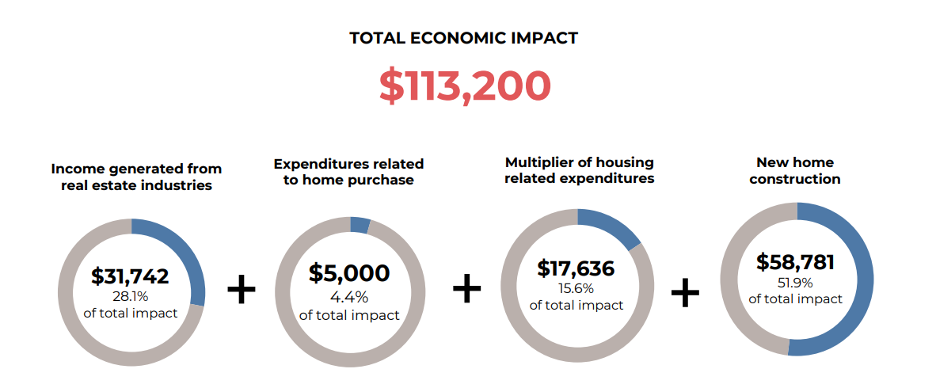Real estate has been, and remains, the foundation of wealth building for the middle class and a critical link in the flow of goods, services, and income for millions of Americans. Accounting for nearly 17% of the GDP, real estate is clearly a major driver of the U.S. economy.
How is the housing market in your state affecting the local economy? NAR calculated the total economic impact of real-estate-related industries on the state economy, as well as the expenditures that result from a single home sale, including aspects like home construction costs, real estate brokerage, mortgage lending, and title insurance.
Nationwide, NAR estimates that each home sale at the median generated about $113,000 of economic impact in 2021.

The top 10 states with the highest income generated from a home sale in 2021 are as follows:
- Hawaii - $306,130
- District of Columbia - $280,180
- California - $246,700
- Massachusetts - $191,680
- Washington - $187,630
- Oregon - $176,460
- Colorado - $169,220
- Idaho - $160,600
- New Jersey - $158,100
- New Hampshire - $156,140
Find out how much the real estate industry is affecting the gross state product for your area.
Jobs impact of an existing home sale
The National Association of REALTORS® estimates that every home sale generates two jobs. Using that ratio, 1,000 home sales generate 2,000 jobs.
The ratio is derived from the economic impact of an existing home sale and the average amount of earnings. While each home sale contributes about $113,000 to the economy, U.S. workers earn an average of $57,300.1 Putting these figures together reveals that every home sale generates two jobs.
Since all real estate is local, the impact of a home sale is even larger in some areas. For instance, in Hawaii and California more than three jobs are generated from every home sale.
Hover over the map to see the job impact of a home sale in your area:
See state-by-state economic impact reports.
1According to the U.S. Bureau of Labor Statistics, the average weekly earnings were $1,102 in April 2022.









